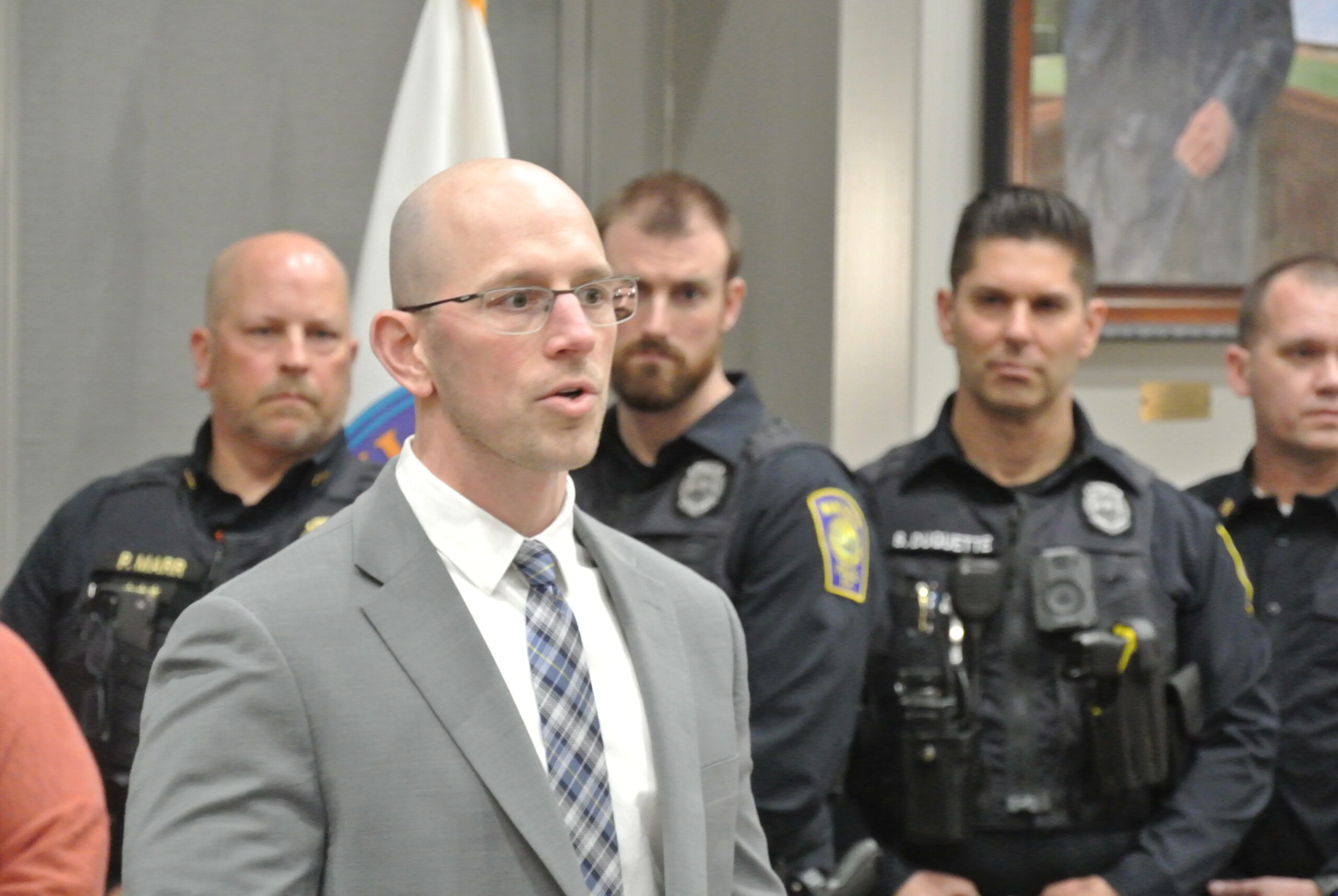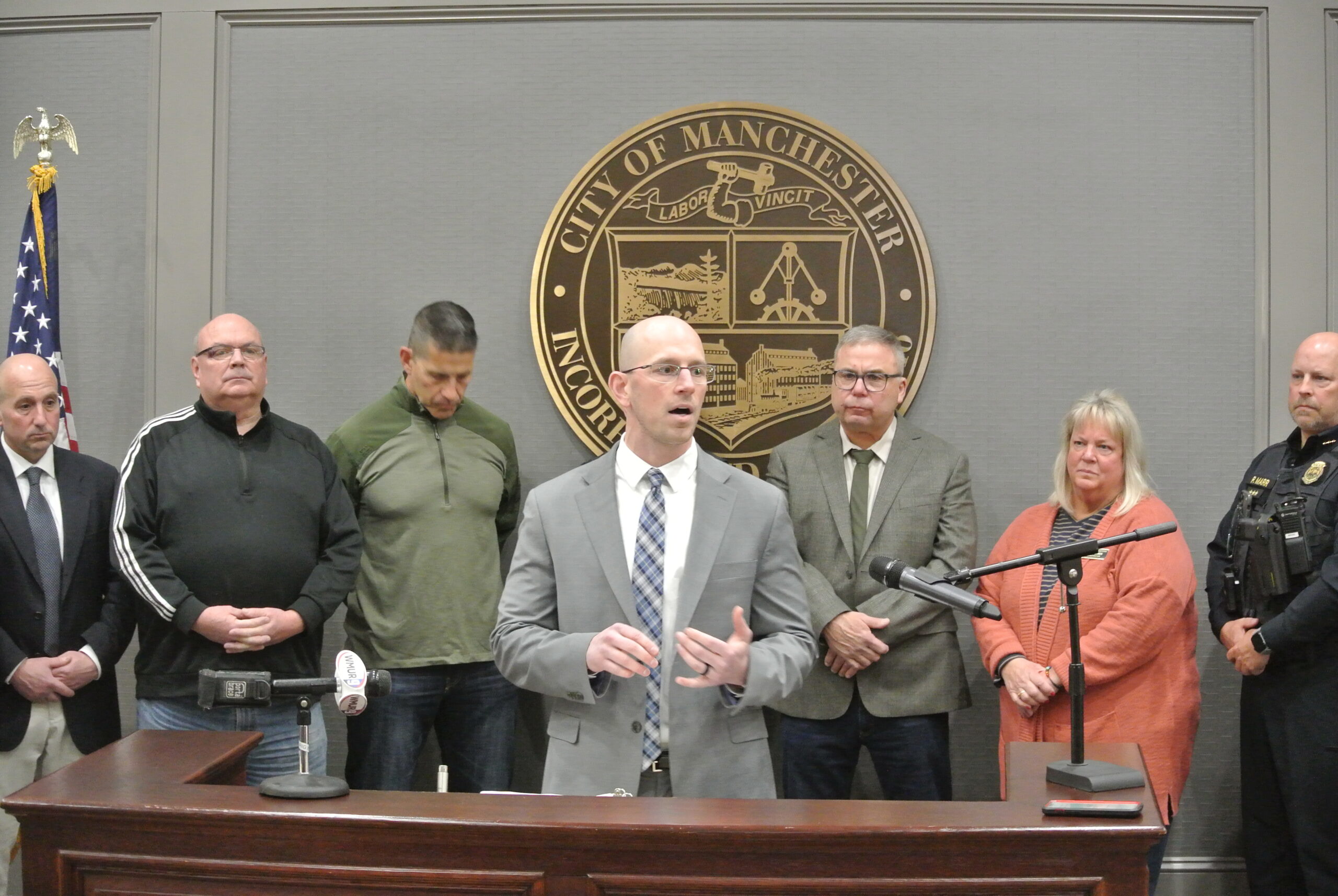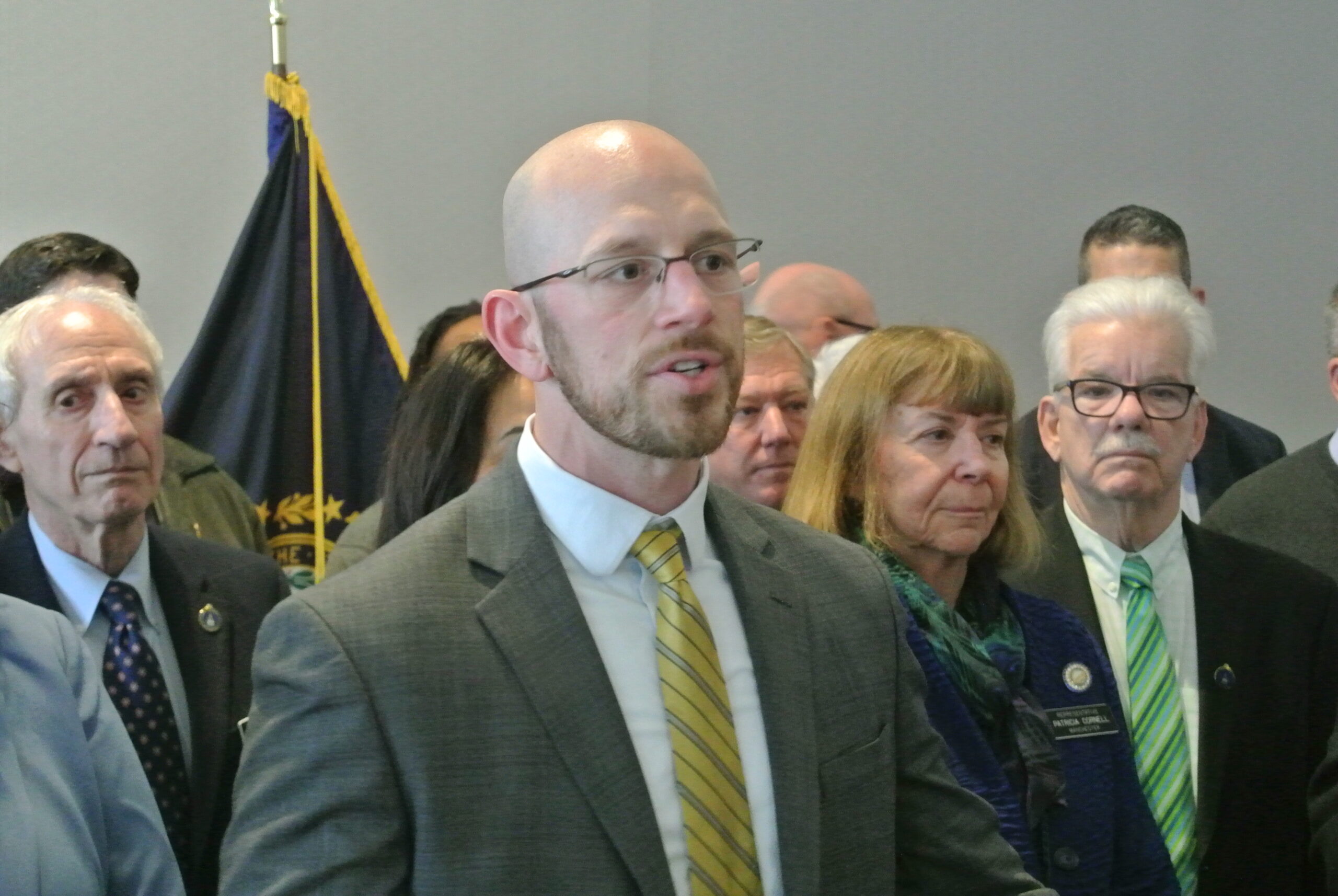Manchester’s Ruais Cheers as Sununu Signs Bail Reform Bill

The revolving door that lets criminals loose hours after their arrest is getting shut down as Gov. Chris Sununu signed a bail reform bill into law on Thursday. It followed months of lobbying from Manchester Mayor Jay Ruais.
“We have been fighting for these pro-victim fixes to bail reform for a long time and appreciate Manchester Mayor Jay Ruais leading the effort of local officials to help get it over the finish line,” Sununu said.
Ruais took up the bail reform cause on his first day in office, heading to Concord to demand lawmakers fix the system that he said allowed alleged criminals to go crime sprees with brief time outs for arrests.
“This is a victory for Manchester and every other town and city in our state,” Ruais said. “The safety of our city is non-negotiable, and this bill contains many reforms that will make Manchester safer. I want to thank the governor and legislature for their efforts to work together in a bipartisan way to reaffirm their commitment to the safety of our communities.”
Manchester’s crime problem became emblematic of the problem with the bail system. In March, Ruais said that of the 817 people Manchester Police arrested in the first few months of the year, 306 — or 37 percent — were already out on bail for a previous criminal charge. In the 12 months prior, repeat offenders made up 26 percent of the total arrests, with 1,178 people already on bail of the total 4,529.
Ruais campaigned on the need to fix bail, support police, and clean up the city, winning a stunning victory over Mayor Joyce Craig’s handpicked successor, Democrat Kevin Cavanaugh.
House Criminal Justice and Public Safety Chairman Rep. Terry Roy (R-Deerfield) said the bill signed Thursday corrects serious flaws in the 2018 law that attempted to make the bill system more just.
“These flaws allowed offenders to be released despite being re-arrested for violations of multiple bail release conditions. Sometimes these were violent offenders and their release led to tragic results. We heard from law enforcement, that oftentimes, arrestees were released and back on the street before the officer had the opportunity to complete the report,” Roy said on Twitter/X.
The new law saw police chiefs, the New Hampshire ACLU, Republicans, and Democrats work together, said Rep. David Meuse (D-Portsmouth.)
“This bill is the end product of a good-faith effort by legislators from both parties and stakeholders as diverse as ACLU-NH and the New Hampshire Chiefs of Police Association. It shows that enhancing public safety and protecting civil liberties don’t have to be mutually exclusive. I’m pleased that the governor chose to sign it into law,” Meuse said.
Perhaps more surprisingly, the need for bail reform even had House Republicans working with Senate Republicans.
“After years of violent criminals and re-offenders being released on PR bail because of a flawed system, the House and Senate finally found a compromise that will work,” said Sen. Bill Gannon (R-Sandown). “I am thankful for the bipartisan efforts of Chairman Terry Roy, the House Criminal Justice Committee, and the members of the Senate Judiciary Committee who spent countless hours working on this. This is a huge win for the state of New Hampshire and we should be proud to deliver real results for our communities.”
The new law closes the revolving door by stopping the release of people re-arrested while already on bail, as well as causing certain violent offenders to be only allowed bail after review by a judge or magistrate, according to Roy. The old system allowed offenders to get bail reviews by civilian bail commissioners instead of the the bail commissioner.
Other changes include having the courts pay bail commissioners instead of the defendants, more training for bail commissioners, and more protections for crime victims. The bill also requires notification for victims of domestic violence before their alleged abuser is released on bail.
The law also updates the way technology is used so police officers will be able to check someone’s bail status in real time. The prior system had paper bail orders entered into databases, meaning there could be a lag time before the bail was entered into computer systems police access, meaning officers couldn’t know if someone they had in custody was already out on bail, Roy said.
“Under the 2018 system, officers were often forced to rely on the honor system, hoping an arrestee would tell them that they were already on bail from another charge in a different jurisdiction,” Roy said.
The 2018 reform sought to stop the unintended consequence of a cash bail system that put poor people to jail pre-trial. In some cases, people would be held for weeks or months in jail without a conviction because they could not come up with a few hundred dollars for bail.
Roy said the bill signed Thursday will still keep people charged with nonviolent crimes from going to jail without a conviction. Cash bail will not be universal, but set aside for people charged in violent crimes or people who allegedly commit crimes while already out on bail.
“Cash bail remains a legitimate tool available to the courts, but only to assure an appearance by someone who is able to pay. It will not be used as a way to hold people,” Roy said.
In fact, Roy said the new law makes sure that no one will be held more than 24 hours without having their case reviewed by the court, including weekends and holidays.

 Of the 817 people Manchester Police arrested this year alone, 306 — or 37 percent — were already out on bail for a previous criminal charge. In the last 12 months, repeat offenders made up 26 percent of the total arrests, with 1,178 people already on bail of the total 4,529.
Of the 817 people Manchester Police arrested this year alone, 306 — or 37 percent — were already out on bail for a previous criminal charge. In the last 12 months, repeat offenders made up 26 percent of the total arrests, with 1,178 people already on bail of the total 4,529.










